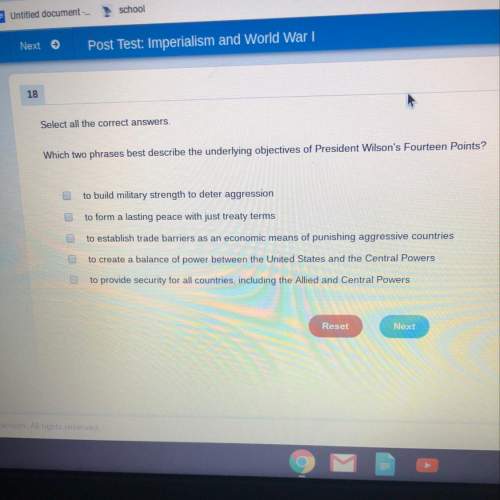

Answers: 1


Other questions on the subject: History


History, 21.06.2019 21:40, ladyree8721
Match the following: 1. empirical the belief that an idea should be evaluated based on how it works 2. fundamentalism knowledge based on observation and experiment rather than theory 3. obtrusive to intentionally force ideas or intrude on others 4. pragmatism not religious or spiritual in nature 5. secular a religious doctrine that emphasizes a return to rigid principles
Answers: 1

History, 22.06.2019 01:00, sjsmith21
Which statement best describes the relationship between the rule of law and democratic forms of government? o a. the rule of law ensures that leaders can only exercise the powers the people give them. b. the rule of law requires direct democracies to introduce representative government. o c. the rule of law allows elected officials to issue extremely harsh punishments for criminals. o d. the rule of law prevents democracies from growing too large to be efficiently governed.
Answers: 2

History, 22.06.2019 04:00, reese12345
How did inca develop their road system? a) they used mortar to hold the stones together. b) they built suspension bridges over rivers. c) they mixed copper and stone together to make the blocks. d) they laid roads in the cities, not in the less densely populated deserts.
Answers: 1
You know the right answer?
Near the end of the paragraph, machiavelli tells the prince: “you too are not bound to observe it [...
Questions in other subjects:













